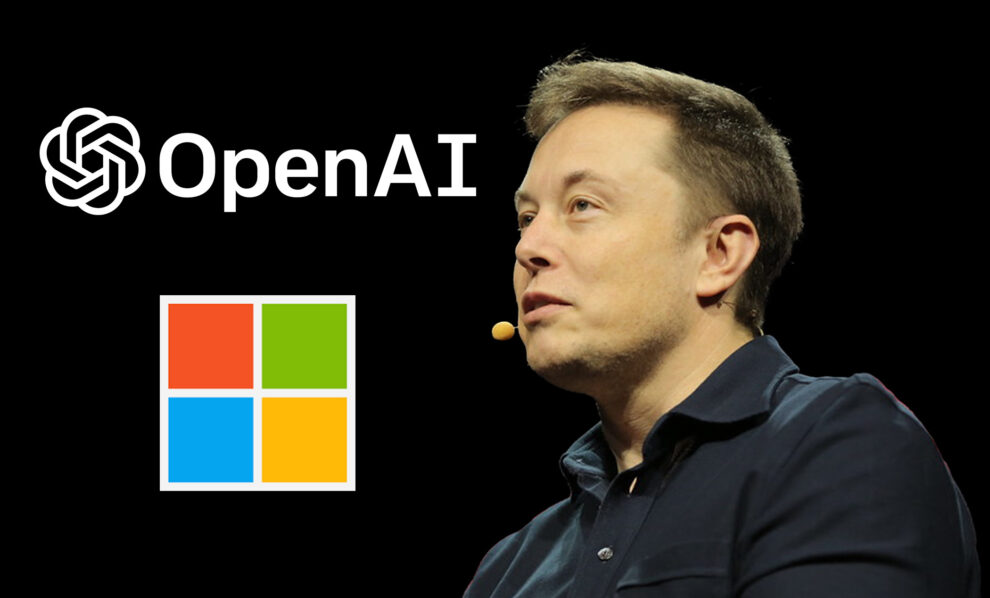A Newly revealed emails from 2015 have shed light on the casual yet pivotal conversations that birthed what would become a $157 billion AI powerhouse. The correspondence, made public through Musk’s amended lawsuit which now includes Microsoft as a defendant, offers a rare glimpse into the idealistic origins of OpenAI and the stark contrast with its current commercial direction.
The lawsuit, which has sent shockwaves through the tech industry, has been expanded to accuse OpenAI and Microsoft of forming a “de facto merger” and engaging in anticompetitive practices. At the heart of the controversy lies Musk’s claim that OpenAI has abandoned its original nonprofit mission, a betrayal he argues was sealed by the company’s deep partnership with Microsoft, which has poured over $13 billion into the venture.
The newly unveiled emails paint a picture of an ambitious vision first pitched by Sam Altman to Elon Musk in early 2015. The catalyst for their collaboration emerged from their joint effort to draft an open letter to the U.S. government about AI regulation. Sensing an opportunity, Altman reached out to Musk with a thought-provoking proposal that would ultimately shape the future of artificial intelligence development.
In his initial email, Altman expressed a pragmatic view of AI’s inevitable development: “Been thinking a lot about whether it’s possible to stop humanity from developing AI. I think the answer is almost definitely not.” His solution was bold – if AI development was unavoidable, then perhaps it should be developed by someone other than Google, with a focus on benefiting humanity rather than corporate interests.
The email exchange reveals Altman’s careful approach to recruiting Musk, whose response to the initial proposal was a characteristically terse “Probably worth a conversation.” Undeterred by this lukewarm reception, Altman followed up a month later with a detailed blueprint for what would become OpenAI.
The proposal outlined a governance structure that included some of tech’s most prominent figures: Elon Musk, Bill Gates, Pierre Omidyar, Dustin Moskovitz, and Altman himself. The vision was clear – create the first general AI with a primary focus on safety and individual empowerment, housed in a foundation that would use the technology “for the good of the world.”
Perhaps most telling was Altman’s careful consideration of the financial structure. Researchers would receive competitive salaries and equity in Y Combinator (YC) rather than direct ownership of their creations, an arrangement designed to minimize conflicts of interest. This detail stands in stark contrast to the current situation, where OpenAI’s commercial success and Microsoft’s substantial investment have transformed the organization’s financial landscape.
The simplicity of Musk’s final response – “Agree on all” – belies the complexity of what would follow. These three words set in motion the creation of an organization that would later become a central player in the AI revolution, developing technologies like ChatGPT that have transformed our understanding of artificial intelligence’s capabilities.
However, the harmonious beginnings didn’t last. Musk’s departure from OpenAI’s board in 2018 marked the beginning of a growing rift. According to reports from Semafor, Musk had sought to take control of the company to compete with Google, and his exit followed the rejection of this proposal along with the withdrawal of his funding.
The current lawsuit represents the culmination of years of mounting tension and disagreement over OpenAI’s direction. Musk’s legal action, particularly its expansion to include Microsoft as a defendant, highlights his concern that the organization has strayed far from its original mission. The addition of Microsoft to the lawsuit underscores the complex relationships now at play in the AI industry, where the lines between competition and collaboration are increasingly blurred.
The timing of this legal battle is particularly significant as it comes amid growing public and regulatory scrutiny of AI development. The emails’ release offers a fascinating historical perspective on how the key players in today’s AI landscape viewed the technology’s future nearly a decade ago, and how their approaches to its development have evolved – or, in Musk’s view, deviated – over time.
As this legal drama unfolds, the revealed correspondence serves as a reminder of the original idealistic vision behind OpenAI’s creation. It also raises important questions about the balance between technological progress and ethical considerations in AI development, and whether the current trajectory of AI companies aligns with their founding principles.
The outcome of this lawsuit could have far-reaching implications for the future of AI development and the relationship between nonprofit research organizations and their commercial partners. As OpenAI continues to push the boundaries of artificial intelligence under its partnership with Microsoft, the fundamental questions raised by Musk’s lawsuit – about control, purpose, and the responsible development of AI – remain more relevant than ever.
















Add Comment